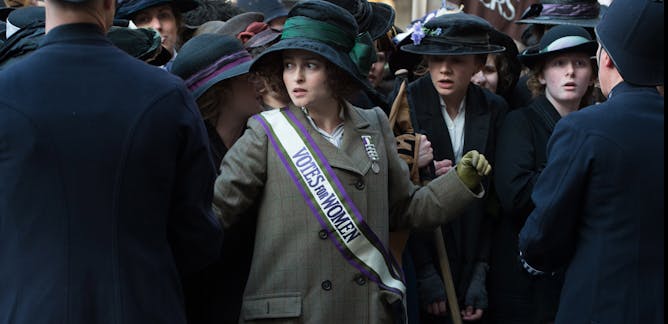
Articles on Historical fiction
Displaying 1 - 20 of 37 articles

A novel about first-wave feminists cleverly critiques the movement’s privilege. The first fiction from Nakkiah Lui’s imprint highlights uncomfortable truths. And a debut about teen girls is ‘too naive’.

Gail Jones has written a richly evocative novel that warrants attention, both for its fascinating subject-matter and for its outstanding writerly qualities.

Leaving out the history of Napoléon’s brutal subjugation of Haiti is akin to making a movie about Hitler without mentioning the Holocaust.

This well-researched book brings to life the odd case of Sir Roger Tichborne and those around him.

Family memoir and reimagined history dovetail beautifully in Kate Grenville’s latest novel.

Christopher Nolan’s film is the latest of many portrayals of the famous theoretical physicist. Here are five of the most intriguing.

Six of the best books from 2023 to read this summer.

Tara Calaby’s novel peeps into the interior lives of women in a 19th-century asylum and uses her historical imagination to generate new knowledge.

Shaka iLembe hits TV screens on 18 June. The Zulu leader has never been portrayed as a real man - hopefully this time he will be.

Michael Meehan’s An Ungrateful Instrument is a vivid, lively novel drawing on the history of French music.

Salonika Burning, set on the first world war’s eastern front, grapples with the question of how to represent the loss and absurdity of war.

Fiona McFarlane’s ‘masterful, complicated’ novel explores the exploitative nature of storytelling. She asks us to consider the truth of the tales we tell about ourselves and our identities.

The question behind Tom Keneally’s latest novel is how a political idealist striving for his country’s freedom could end up supporting slavery.

A fictional portrayal of Lucrezia de’ Medici imagines the inner life of a tragic historical figure, but effaces the true complexity of her situation.

A short guide to the Wolf Hall author’s remarkably varied back catalogue.

The Gothic horrorshow of Ottessa Moshfegh’s latest novel has sharply divided critical opinion.

When Stephanie Trigg was a young reader, The Gentle Falcon, set in 1396, introduced her to the beauty and danger of the medieval world.

A blend of fact and fiction, Nimblefoot imagines the life of a long forgotten Australian sporting hero.

The Pulitzer Prize winning writer’s latest novel, based on the true story of a champion thoroughbred, represents historical fiction at its best.

A new historical novel, redolent of the masterful writing of Henry James and Charlotte Brontë, explores the themes of loss, alienation and displacement.
